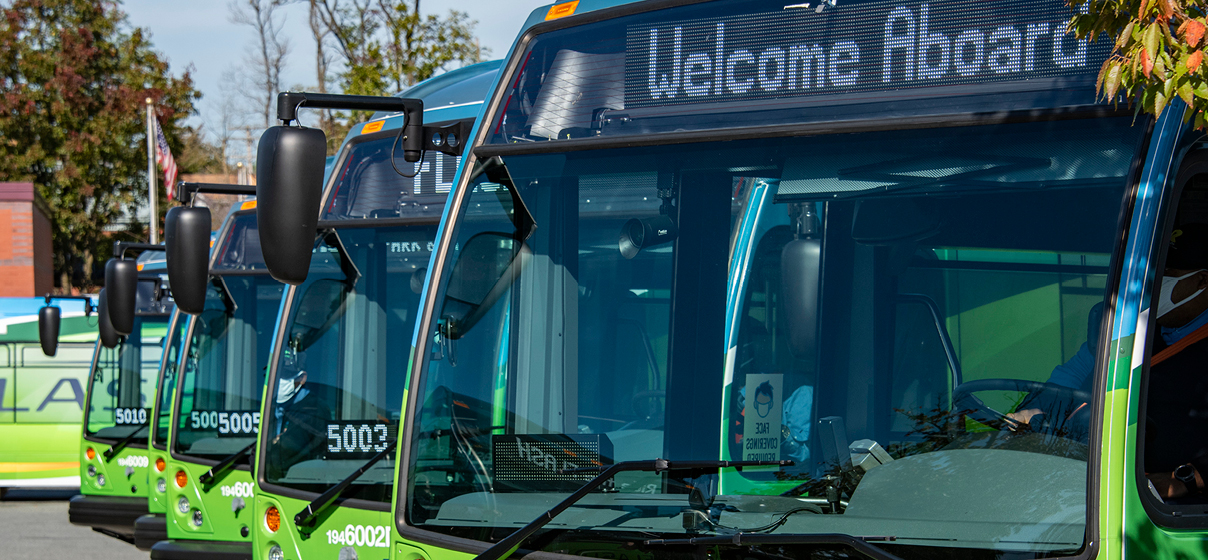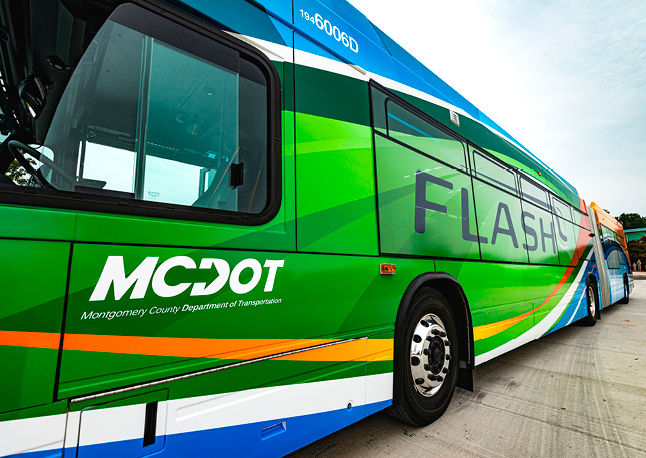BALTIMORE, MD – STV, a leading professional services firm that plans, designs and manages infrastructure projects across North America, is celebrating the release of the Zero Emission Bus Transition Plan it prepared in collaboration with Montgomery County, Maryland, which maps out how the county will convert its transit fleet of nearly 400 Ride On buses to zero-emission vehicles by 2035. Developed in partnership with Montgomery County Department of Transportation (MCDOT), the master plan identifies the county’s existing infrastructure assets, technology options and potential federal and state funding opportunities for MCDOT to pursue.
The master plan, which was jointly released by MCDOT and Montgomery County Department of General Services (MCDGS), aligns with the county’s ambitious climate action plan to reduce greenhouse gas emissions by 100 percent by 2035. The county had previously identified that about 42% of carbon emissions originate from the transportation sector.
In preparing the master plan, STV and its team of nationally renowned zero emissions experts guided the county through its transit fleet transition by laying out what infrastructure is needed to support maintenance and operations, including vehicles, depots and facilities and fueling options. The plan is intentionally flexible to accommodate emerging technology and relies heavily on state and federal grants that MCDOT has so far been successful in receiving, including more than $30 million for environmentally friendly transportation solutions over the past two years.
“Montgomery County is at the forefront among local governments for transitioning to zero-emissions transportation and we’re thrilled to be a part of this milestone achievement,” said Philip Hanegraaf, FAICP, senior vice president and national director of planning at STV. “By leveraging our multidisciplinary team including experts from our vehicles, systems, planning and infrastructure economics practices, we were able to deliver for our client.”
Following the master plan’s release, MCDOT and MCDGS are moving forward with finding innovative ways to develop clean energy charging infrastructure to support the zero-emission bus fleet. In October 2022, the county unveiled the nation’s largest solar-powered microgrid for charging of public buses at the Brookville bus depot in Silver Spring, Maryland. MCDGS is now heading up the implementation of an even larger microgrid that will be breaking ground at the Gaithersburg bus depot later this year to power a future clean hydrogen bus project and provide additional charging infrastructure for electric buses.
“This comprehensive and innovative, long-range plan sets us apart as industry leaders,” said Maricela Cordova, special assistant to the director for strategic projects at MCDOT. “It is an excellent example of teamwork and collaboration, and it provides a solid baseline for the County’s transit fleet transition to zero emissions. We are pleased with the result, and we look forward to its implementation in the coming years. “
STV has played a leading role in facilitating the transition to zero-emission technology for public agencies. For example, STV is providing a wide range of technical consulting services for the Los Angeles County Metropolitan Transit Authority’s transition to zero-emissions vehicles; designing the Massachusetts Bay Transportation Authority’s first maintenance facility to accommodate zero-emission buses; and helping to secure a $29.5 million Clean School Bus Grant for New York City School Bus Umbrella Services.






